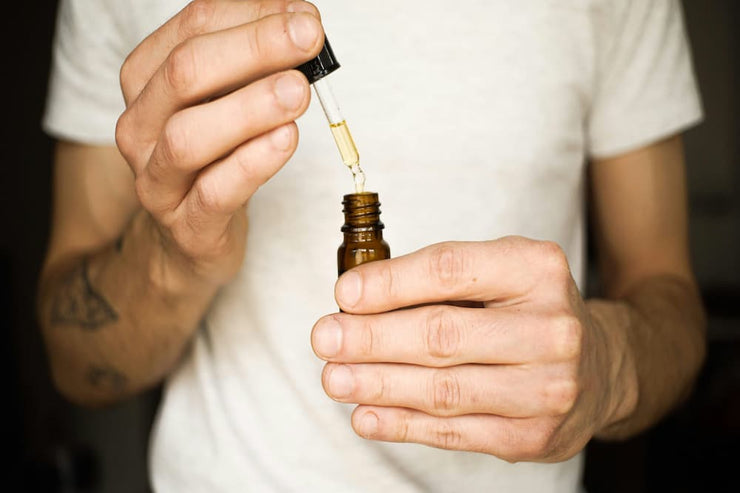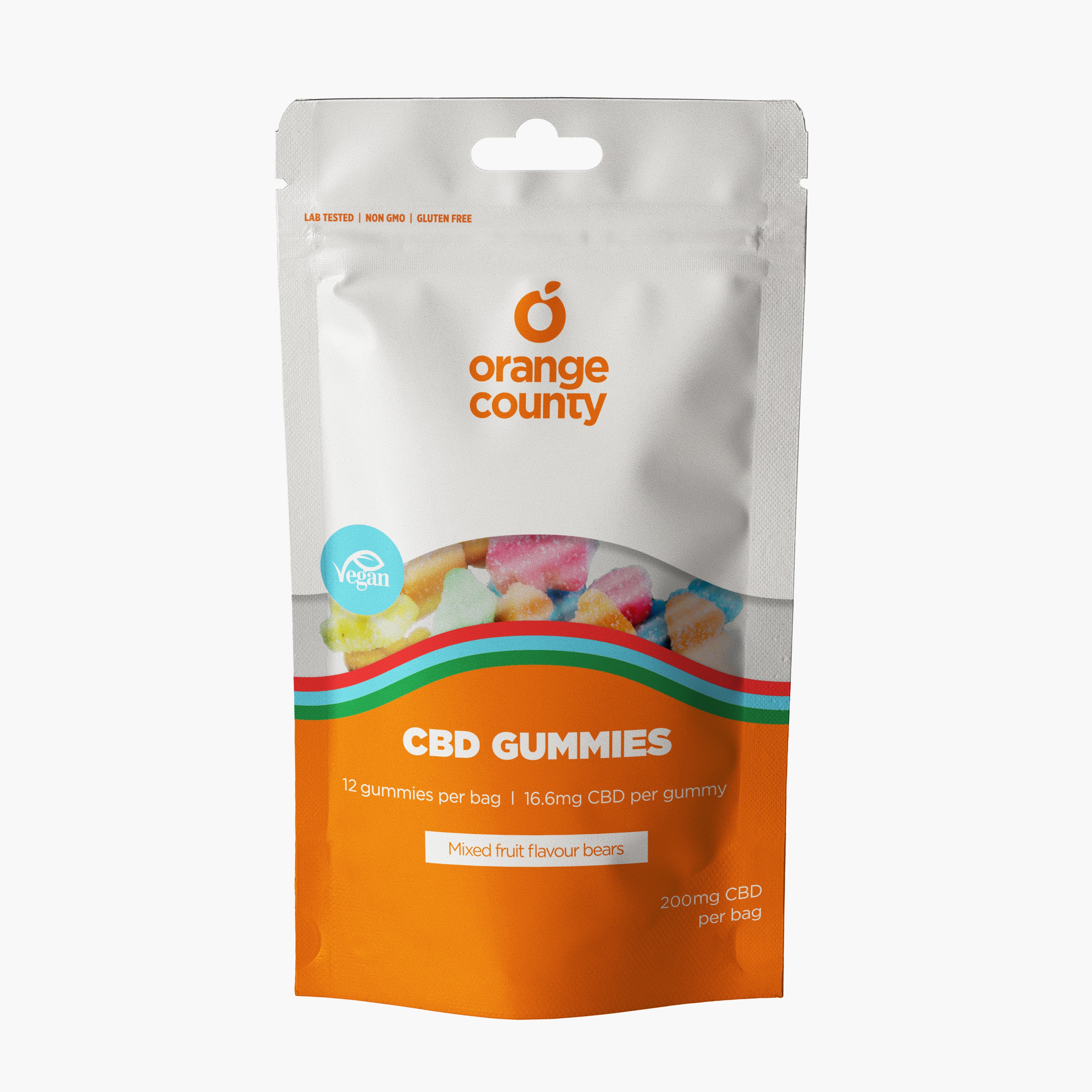How Long Does It Take for CBD to Work?

CBD can start working anywhere from a few minutes to over an hour, depending on how you take it. Fast-acting methods like vaping may bring effects within 5 - 10 minutes [1], while CBD oil taken sublingually (under the tongue) usually starts working in 15 - 45 minutes. Edibles or capsules can take 30 - 90 minutes [2] .
If you're curious about how quickly CBD kicks in, what influences the timing, and how to make it work best for you, keep reading.
Table of Contents:[hide]
What is CBD?
CBD, short for cannabidiol, is a natural compound found in cannabis plants. Unlike THC, it doesn’t get you high. It interacts with the body’s endocannabinoid system, which helps regulate sleep, mood, pain, and has many more benefits.
What affects how long CBD oil takes
How fast CBD works depends on several factors, including how you take it, your body’s metabolism, whether you’ve eaten, and the product’s quality. Each of these can impact both onset time and duration.
Method of consumption
The different CBD products you take can vary in how fast they work:
|
Method |
Onset Time⏱️ |
Duration⌛ |
Notes🧪 |
|
5–10 minutes |
1–2 hours |
Absorbed through lungs; rapid onset. |
|
|
CBD Oil drops (sublingual) |
15–45 minutes |
2–4 hours |
Held under tongue for quicker absorption; bypasses digestion |
|
30–90 minutes |
4–6 hours |
Slower onset due to digestive processing. |
|
|
30–90 minutes |
4–6 hours |
Absorbed via digestion; timing influenced by food intake and metabolism |
|
|
Varies |
Localised effect |
Doesn’t enter bloodstream; acts on peripheral cannabinoid receptors |

Dosage and body chemistry
Your weight, metabolism [3] , and age all influence how CBD affects you. Higher body weight might need a higher dose. A faster metabolism could mean quicker onset but shorter duration.
A good rule of thumb is: start low and go slow. Begin with a small dose, then increase gradually if needed.
Taking CBD with or without food
CBD taken on an empty stomach may act faster but might not last as long. Taking it with food, especially fatty foods, can boost absorption and prolong effects.
Tips for timing:
-
For quicker relief, take oil or vapes without food
-
For longer-lasting results, pair capsules or edibles with a meal
Type and quality of CBD
CBD comes in three main forms:
-
Isolate: Pure CBD, no other compounds
-
Broad-spectrum: CBD plus other cannabinoids (no THC)
-
Full-spectrum: Includes all cannabinoids, including trace THC (under legal limits)
Products with higher bioavailability (how much your body absorbs) will usually act faster. Higher-quality oils often use better extraction methods, improving effectiveness.

How long does CBD stay in your system?
CBD effects typically last between 2 to 6 hours, depending on the dose and how it's taken. While the noticeable effects wear off within hours, CBD can remain detectable in the body for 2 to 5 days - and sometimes longer with consistent use.
Pure CBD won't appear on drug tests, but full-spectrum products may contain trace amounts of THC, which could result in a positive result. In the UK, CBD products are legal if they contain less than 0.2% THC. Drug tests usually screen for THC, not CBD, so individuals in sensitive roles should choose THC-free formulas to avoid potential issues.
Read more about how long CBD stays in your system and what affects detection times.
How often should I take CBD?
Most people take CBD either daily or as needed, depending on their goals. Daily use may offer more consistent effects over time, especially for issues like anxiety, pain, or sleep. Others use it occasionally, targeting moments of stress or discomfort.
To build a routine, start with a small dose each day and observe how you feel. Many users prefer taking CBD in the morning to support focus or mood, while others take it in the evening to aid relaxation and sleep. Some may even split their dose across the day.
See ‘best time to take CBD oil’.
Tracking your experience over several days can help guide adjustments. Effects may take time to build, so consistency is key. If you don’t notice results within a week, consider a gradual increase.
The general rule is simple: start low, go slow, and stay consistent.

Choosing Trusted, High-Quality CBD Products
Not all CBD is created equal. The quality of your CBD can directly impact how quickly it works, how long it lasts, and whether you feel the effects at all. Low-quality or poorly formulated products may have inconsistent potency or reduced bioavailability, meaning your body absorbs less of the CBD you're paying for.
Orange County CBD is a trusted UK-based brand that offers lab-tested, broad-spectrum and full-spectrum CBD products.
For high-quality, legally compliant products, explore our CBD Gummies selection today.
Whether you’re looking for relaxation, pain relief, or just a sweet treat, try our grab bag today!
Research
[1] – Study: Tasty THC: Promises and Challenges of Cannabis Edibles
Source: https://pmc.ncbi.nlm.nih.gov/articles/PMC5260817/
Summary: A 2017 study titled Tasty THC: Promises and Challenges of Cannabis Edibles (PMC5260817) found that edible cannabis has a significantly delayed onset compared to inhaled methods, typically taking 30–90 minutes for effects to begin and peaking around 2–4 hours after consumption. The delay is caused by the digestive and metabolic process, which converts THC into a more potent metabolite. The study highlights the risk of overconsumption due to this delayed onset and emphasises the need for clear dosing guidance and consumer education.
[2] – Study: Plasma delta-9-tetrahydrocannabinol concentrations and clinical effects after oral and intravenous administration and smoking
Source: https://ascpt.onlinelibrary.wiley.com/doi/abs/10.1038/clpt.1980.181
Summary: A study comparing THC administration methods found that smoking and intravenous use led to rapid and consistent absorption, while oral ingestion produced much slower and more erratic absorption, with only 6% systemic availability. Despite lower plasma levels, oral THC had longer-lasting effects, and the onset was significantly delayed. These findings support why edibles, including CBD-based ones, take longer to work but may last longer in the body.
[3] – Page: Physiology, Metabolism
Source: https://www.ncbi.nlm.nih.gov/books/NBK546690/
Summary: Metabolism refers to all the chemical reactions within the body that generate energy and support vital functions such as growth, repair, and reproduction. These processes, controlled by enzymes and influenced by factors like age, diet, sex, and illness, are largely consistent across different organisms. Energy is mainly produced by breaking down carbohydrates, fats, and proteins into simpler substances, with ATP acting as the main energy carrier. The pancreas and liver play central roles in regulating metabolism via hormones such as insulin and glucagon. Carbohydrates are quickly accessible and stored as glycogen; fats are energy-rich but require oxygen and are transported as lipoproteins; amino acids contribute to both glucose and fat synthesis. Disruptions in hormonal balance or conditions such as diabetes, sepsis, and G6PD deficiency can impair normal metabolic functions, often resulting in excessive tissue breakdown or inefficient energy use.

